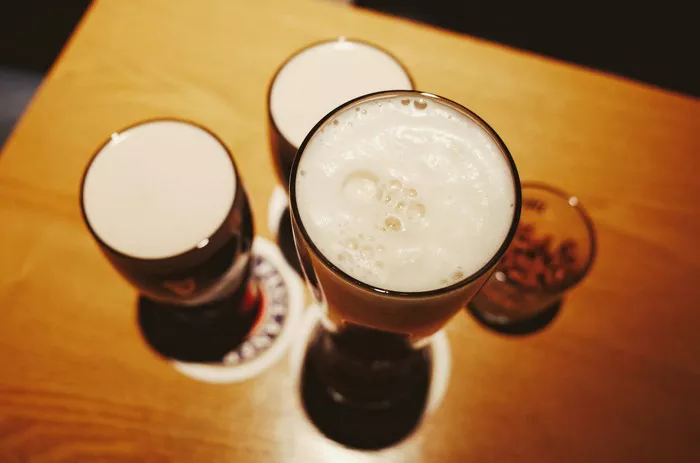For some individuals, the enjoyment of a cold beer can be overshadowed by an unexpected physical reaction—congestion. This peculiar reaction, often accompanied by symptoms like stuffy nose, facial pressure, or even headaches, has led many to ponder: “Why do I get congested when I drink beer?” This article delves into the complexities behind this phenomenon, exploring the various factors contributing to beer-induced congestion and shedding light on potential remedies.
Understanding Beer Allergies and Sensitivities
Beer contains various ingredients that could trigger allergic reactions or sensitivities in certain individuals. One potential culprit is the presence of histamine in beer, a compound naturally produced during fermentation. Histamine is known for its role in allergic responses and can lead to symptoms like nasal congestion and sneezing. Thus, individuals sensitive to histamine may experience congestion after consuming beer.
Moreover, certain beers contain sulfites, which act as preservatives. Sulfites are notorious for triggering allergic reactions in some people, manifesting as congestion, hives, or even difficulty breathing. Therefore, for individuals sensitive to sulfites, beer consumption could provoke congestion as part of an allergic response.
Alcohol and Vasodilation: Impact on Congestion
Alcohol, a primary component in beer, can exert vasodilatory effects on blood vessels. Consumption of alcoholic beverages can cause blood vessels to expand or dilate, leading to increased blood flow. In some individuals, this dilation may affect nasal blood vessels, contributing to nasal congestion or a stuffy nose. This phenomenon might explain why some individuals experience congestion specifically when drinking beer, compared to other alcoholic beverages with different alcohol concentrations or ingredients.
Additionally, alcohol consumption can cause dehydration, leading to mucous membrane dryness in the nose and throat. This dryness might prompt the body to produce more mucus, resulting in congestion as a protective response to maintain adequate moisture levels.
Role of Specific Ingredients and Additives
Apart from histamine and sulfites, other beer ingredients or additives might contribute to congestion in susceptible individuals. For instance, barley or wheat—the grains used in beer production—could trigger allergic reactions in individuals with sensitivities or allergies to these grains. This allergic response might manifest as congestion or other nasal symptoms.
Furthermore, some beers contain additives such as hops, which can harbor allergenic properties for certain individuals. Hops allergies might provoke congestion or exacerbate existing nasal issues, highlighting the intricate relationship between beer components and allergic reactions.
Genetic Predispositions and Enzyme Deficiencies
Individual genetic variations play a crucial role in how our bodies metabolize certain compounds present in beer. For instance, some individuals may have deficiencies in enzymes responsible for breaking down histamine or other components found in beer. This inability to efficiently metabolize these compounds can lead to an accumulation in the body, potentially triggering congestion or other allergic-like reactions.
Moreover, genetic predispositions might influence an individual’s susceptibility to alcohol-induced vasodilation or allergic responses to specific beer ingredients. Understanding these genetic variations could provide insights into why some individuals experience congestion when drinking beer while others do not.
Environmental Factors and Cross-Reactivity
Environmental factors can also contribute to beer-induced congestion. Pollen allergies, for example, might lead to cross-reactivity with certain proteins present in beer, intensifying allergic reactions and causing nasal congestion in susceptible individuals. This phenomenon, known as oral allergy syndrome, occurs when proteins in foods or beverages resemble allergens found in pollen, triggering allergic symptoms, including congestion.
Furthermore, environmental pollutants or contaminants in beer might exacerbate nasal symptoms in individuals with sensitivities or compromised respiratory systems, amplifying the likelihood of experiencing congestion after beer consumption.
Managing Beer-Induced Congestion
For individuals experiencing congestion when drinking beer, several strategies may help alleviate symptoms or prevent reactions. Choosing beer types with lower histamine content or opting for sulfite-free options might reduce the likelihood of triggering allergic responses leading to congestion. Additionally, staying hydrated before, during, and after consuming beer can help counteract the dehydrating effects of alcohol, potentially minimizing mucous membrane dryness and congestion.
Moreover, consulting with an allergist or healthcare professional can help identify specific allergens or sensitivities, enabling individuals to make informed decisions about beer choices or potential avoidance strategies.
In conclusion, the question “Why do I get congested when I drink beer?” encompasses a multitude of factors ranging from individual sensitivities to beer ingredients, genetic predispositions, and environmental influences. Understanding these complexities can empower individuals to navigate beer consumption more effectively and manage beer-induced congestion by employing personalized strategies tailored to their unique needs and sensitivities.


